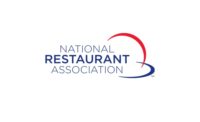Marked by labor shortages, among other challenges, 2022 forced the food industry to support food safety laboratories in ways that helped them manufacture and distribute safe products through streamlined processes and innovative technology. This will prove to be more valuable than ever in 2023 as customers are not only still vying with labor crunches, but also facing changing food safety and quality specifications and industry globalization, thus generating a greater need for digitization and time-efficient solutions.
Based on customer conversations and observations, the team at Neogen has identified the following areas where food safety laboratories will seek support most in 2023.
More global footprints
The increasing globalization of the food industry — from the sourcing of ingredients to technology and materials for producing and packaging goods for export — has a great impact on the food safety industry. Because laws and regulations concerning food safety differ from country to country, it can be difficult to keep track of compliance for all materials or ingredients across numerous countries.
Food distributors need partners that have boots on the ground across different markets globally to help them develop processes that comply with a wide array of local regulations.
Digitization
As food distributors and food safety laboratories continue to contend with industry challenges like globalization and labor crunches, they will increasingly rely on vendors that can help them not only collect but also synthesize data more quickly to aid their decision making.
Automation technology is a great option for food safety laboratories as it digitizes many testing processes while simultaneously increasing productivity and efficiency. Additionally, automated technologies minimize the risk of human error. Less margin for error, and more timely, accurate results can help improve production and, ultimately, customers’ bottom lines. For example, the faster a food safety lab can get an accurate positive for Salmonella, the faster that lab can contact the manufacturer to implement corrective actions.
To protect their bottom line, food industry companies, whether manufacturers or laboratories, will seek streamlined, end-to-end solutions that will not only make it easier for them to gather food safety data, but also put it to immediate and practical use.
Innovative, time-saving products
Food safety laboratories are facing labor shortages and are searching for solutions that help them automate or streamline laboratory methods, saving them time training new analysts as well as minimizing human error.
In addition to incorporating automation technology into food testing labs, utilizing ready-to-use solutions can significantly reduce the time to result. For example, rather than a technician spending multiple hours prepping Petri dishes within a lab, utilizing ready-to-use culture media or ready-to-use plates can help them gain time back to complete more testing. Products like ready-to-use dilution buffers, media and other reagents are also available to help labs increase efficiency.
Even with intuitively designed products, many food manufacturers or labs may still need help getting employees up to speed on the products or technology. Therefore, dedicated customer service teams and detailed training or educational resources will prove an invaluable offering for food safety laboratories.
Food safety laboratories will expect even more from their food safety partners in 2023. Offering local expertise and support amid increasing globalization compounded with the best products, solutions and training that help food safety laboratories digitize and automate their testing processes will prove to be a winning combination for 2023 and beyond.
Gabriela Lopez Velasco is technical service specialist for Neogen Food Safety.




Report Abusive Comment